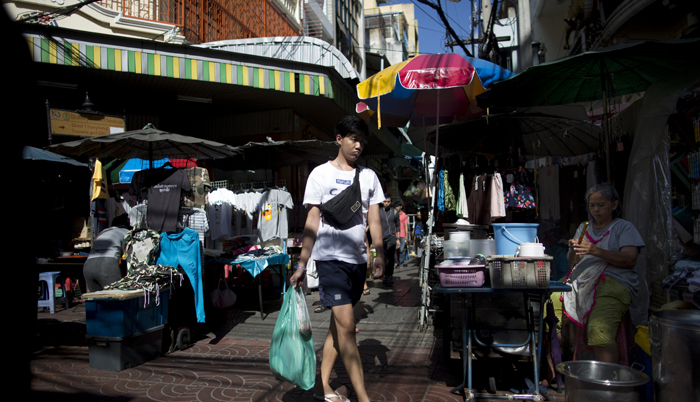![]() Home > World Business
Home > World Business
Volatility's Return Is Making a Haven of Asia's Emerging Markets

Photographer: Brent Lewin/Bloomberg
![]() February 23rd, 2018 | 10:50 AM |
February 23rd, 2018 | 10:50 AM | ![]() 1243 views
1243 views
ASIA
The specter of volatile financial markets is prompting investors to be more selective in emerging markets and Asia is stacking up to be among the most resilient when it comes to economic measures.
Among the 22 developing economies, Taiwan and Thailand come out on top in terms of current-account balances, while Brazil and Hungary are projected to have the largest debt pile, data compiled by Moody’s Investors Service show.
“Emerging-market assets have been bought as a bulk, but not every economy will continue to attract foreign investors from here,” said Tsutomu Soma, general manager of SBI Securities Co.’s Independent Financial Advisor department in Tokyo. “Asia stands out both politically and economically. Latin America and Europe face political issues, while the Middle East’s got geopolitical risks.”
While emerging-market assets have recovered some of their losses from the February rout, another bout of volatility could be just around the corner as U.S. benchmark Treasury yields rise to near 3 percent amid prospects for tighter monetary policy by the Federal Reserve. The MSCI Emerging Markets Index of shares is headed for a second weekly gain, rising 0.8 percent so far this week.
Here’s how the 22 developing countries compare in terms of economic data.
Current-Account Position
Turkey will have the widest current-account deficit this year at 4.5 percent of gross domestic product, followed by Argentina and Colombia, according to Moody’s. By contrast, Taiwan, Thailand and South Korea will have the biggest surpluses, exceeding 5 percent of their GDPs.
When it come to currencies, those with a combination of solid current-account surpluses, ample foreign-exchange reserves and relatively light foreign investors’ positioning are likely to perform well even in an environment of increased market volatility, according to Divya Devesh, a Singapore-based Asian currency strategist at Standard Chartered Plc.
Standard Chartered maintains a positive view on the baht, while it expects the Philippine peso to continue to underperform due to “a modest current-account deficit and a relatively hands-off central bank,” he said.
Fiscal Position
Looking at the fiscal standing may give clues to bond investors. Brazil will have the biggest budget deficit in 2018 at 8 percent of GDP, while only the Czech Republic and South Korea will post surpluses, according to Moody’s.
“Sovereigns that have stronger fundamentals are likely to be best positioned to capital flow volatility,” said Anushka Shah, a Moody’s sovereign analyst in Singapore. “Some features that raise vulnerability to such flows include wider financing needs as reflected in fiscal and/or external imbalances, as well as relatively high degrees of leverage.”
Debt Pile
Brazil also stands out as the nation with the heaviest government debt burden at almost 80 percent of GDP this year, according to Moody’s. At the other end of the spectrum is Russia, with debt at just 14 percent of GDP.
Reserves Strength
Countries with stronger reserve standing will be more resilient to external shocks, a reason for investors to be bullish on their assets. Governments that rely on cross-border, foreign-currency sources of financing to fund their overall debt -- such as Indonesia, Peru, Argentina, and Turkey -- would be vulnerable to sudden stops or outflows of capital, according to Moody’s Shah.
Sovereigns that run sizable current-account deficits, or whose external debt servicing obligations over the next year are higher than their present stock of foreign-exchange reserves -- such as Chile, Argentina, Malaysia, Hungary, Romania, Turkey -- would be most impacted, Shah said.
Source:
courtesy of BLOOMBERG
by Karl Lester M Yap and Yumi Teso
If you have any stories or news that you would like to share with the global online community, please feel free to share it with us by contacting us directly at [email protected]